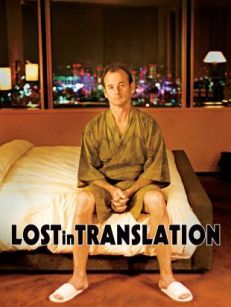
Which is better, putting adjectives before nouns as in English, eg. ‘white house’, or after as in Spanish, eg. ‘casa blanca’?
They would both seem to be equally valid. Every language has its own consistent grammatical systems, even if those systems differ between languages.
But are some languages better?

There may be areas where one language seems to be more eloquent or efficient than another. For example, in Latin-based languages like Italian, French or Portuguese where nouns have gender, if you say ‘I was with my friend’ it is clear whether the friend is male or female. In English you must make an awkward construction like, ‘I was with my friend, a girl, called Niamh.’ (‘Your girlfriend?’ ‘No just a friend who is a girl!’ That’s another problem.)

On the other hand, you might like the fact that in English you don’t have to differentiate between a formal and informal ‘you’ as in other languages. You don’t have to constantly think about your status compared to the person you are talking to.
UNTRANSLATABLE WORDS
Some languages may also have a word for a concept that other languages don’t. For example, the term schadenfreude in German meaning ‘taking pleasure in another’s misfortune’. It is possible to express this idea in English but not in a single word.

Here are some other examples of unique words from different languages and their general meaning in English.
Cafuné (Brazilian Portuguese) Affectionately running your fingers through someone’s hair.
Inshallah (Arabic) “If God wills.” The meaning depends on the speaker’s tone of voice. It can be a genuine sentiment or it can be used as a way to imply you actually aren’t planning to do something.
Le mot juste (French) The right word at exactly the right time.
Abbiocco (Italian) Sleepiness after eating a big meal.
Załatwić (Polish) The use of friends, bribes or personal charm to get something done.
English also has some words that don’t have exact translations.
Serendipity – Gobbledygook – Trade-off – Cheesy – Bromance.
You can look them up if you don’t know them. Can you think of any examples of untranslatable words in your languages?
Words Can Change History
Incident 1 – Why was the world was so afraid of attacks from Mars one hundred years ago? Which of the two possible explanations below do you think is true?

A. The Russian scientist Sakharov who discovered Mars named it ‘Krasnaya – ‘Beautiful Planet’. This was wrongly translated into English as the ‘Red Planet’ and it became associated with the West’s Cold War fear of Communism.
B. Shiaparelli, an Italian astronomer who studied Mars, discovered ‘canali’ on the planet. This word was wrongly translated into English as ‘canals’ (artificial, ie. made by aliens) instead of ‘channels’ (formed by natural causes).
Scroll down to find the answer.
Incident 2 – Another famous incident with a difficult-to-translate word happened in 1945 near the end of WWII. When the USA demanded that Japan surrender, the Japanese leader Kantoro Suzuki replied using the word ‘mokusatsu’ which has two possible meanings:
1. ‘No comment. We’re still thinking about it.’
2. ‘We’re ignoring it with disrespect.’

Unfortunately, option 2 was the translation that was sent back to the American government by the translators. Ten days later, the atomic bomb was dropped on Hiroshima.
*Historians have debated how significant or not this mistranslation was to these subsequent events but it is certainly something interesting to consider.
Incident 1 – Answer B is true! In 1888, Italian astronomer Giovanni Schiaparelli announced the discovery of a network of narrow lines on Mars, which he described as ‘canali’, which seemed to imply intelligent life being present on Mars. This led to a paranoia in popular culture that Martians could attack the Earth.
The Russian word ‘krasnaya’ can mean either ‘red’ or ‘beautiful’ and this word, with the meaning “beautiful”, is the true name of the famous square in Moscow, wrongly translated as ‘Red Square’. There was never any connection to the planet Mars.
What we can say finally, is that while some languages may be more efficient in specific areas in how they express certain ideas or concepts, most or all languages are generally flexible enough to adapt and expand to the needs of its speakers. If speakers of a language need a particular concept often enough, they will create a word to express it, either by relying on native word-creation processes or by borrowing the term from another language.

For example, twenty years ago in Ireland only one word was really used and needed for ‘coffee’. When a greater range of coffee options began to arrive, other names were borrowed from a language with lots of word to describe coffee – Italian! So, now we have an espresso or cappuccino whenever you want. And of course these words were further adapted within the new language (not just in Ireland) into frappuccino, chai latte etc.
How about you – have you ever mistranslated or misunderstood an important word?
Can you think of any examples of how your own language might be more or less efficient or eloquent than English?
